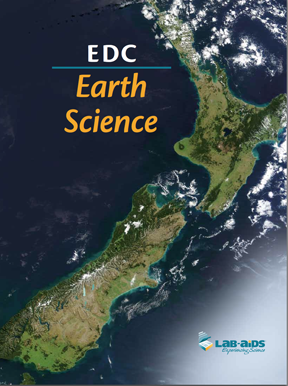K-16 Projects
ODI is focused on bringing more data into our classrooms, from kindergarten through college. Learn more about current and past ODI projects focused on K-16 data education:
Data Stories: Co-Designing Curricula and Tools with Teachers to Support Middle School Youth’s Critical Data Literacy through Remixing
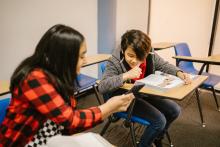
Youth are avid creators and consumers of data-based claims through their participation on social media sites, in which they view, create, and share content. They remix content, building off one another’s videos, gifs, and memes to represent and discuss topics they care about. However, participation on these same platforms can result in echo chambers, misinformation, and proliferation of perspectives that are detached from human experience. This project aims to develop curricula and tools with middle school Math and English teachers that will leverage youth’s practices with digital media remixing to develop argumentation skills and critical data literacy around socio-political issues. The project will...
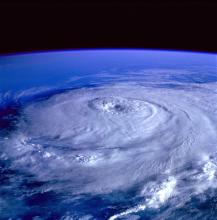
Building Insights Through Observation is a four-year project funded by the National Science Foundation (NSF) to research the ways in which arts-based instructional methods and geospatial data visualization can be successfully applied by science teachers to help students develop critical thinking skills and practices. Using visualizations from NOAA’s Science On a Sphere, the project will work with middle school science teachers to develop tools for STEM educators to use these data visualizations effectively. The research will examine: (1) the ways in which...

EDC was awarded NSF funding in 2021 to design, develop, test, and institutionalize an innovation pathway focused on data. Working with a team of high school and community college educators and industry and community partners, ODI will develop a guidebook to help teachers work with students developing data-rich Civics projects to meet state Civics requirements and develop/pilot a Visualization+Data Course and a Python+Data course to complete the IPDC. Working with teacher leaders/facilitators from two development sites, IPDC will develop and test 1) a Civics+Data module introducing data literacy through student developed Civics projects that are a new legislatively-mandated requirement for high school...
WeatherX is developing middle-school curriculum units that investigate extreme weather events to promote skills in analyzing large-scale scientific data and interest in data science careers among students in rural areas.
As scientific discovery becomes ever more data-driven, there is a critical need to build a scientific workforce with robust skills in large-scale data analysis. Nowhere is the need to strengthen learning opportunities greater than in rural areas, where a majority of the nation’s school districts reside and where under-investment persists.
To promote interests in data analysis and data science careers, WeatherX...

Over three years, the DCA project created and tested problem-solving activities for preK students (4-5-year-olds) that integrate mathematics and computational thinking (CT) by engaging children in data collection and analysis investigations. Using hands-on materials and a digital tool that collects data and creates visual data displays, the team targeted specific math skills that are naturally engaging for young children (e.g., counting and categorizing), and provide a foundation for later mathematics competencies. Ultimately, this project will set the stage for children who are underrepresented in STEM to succeed in mathematics and computational thinking tasks in elementary school and beyond.
...
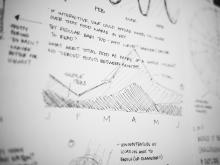
This collaborative research project, funded by NSF, aims to co-design and study approaches that integrate art and mathematics to promote data literacy learning and instruction for middle school students and teachers. Many existing efforts to promote data literacy are grounded in mathematical concepts of measures of center and standard deviation or narrowly focused in single subject domains, such as science and math. Taking an art-based perspective on data science has the potential to promote student relevance, accessibility, engagement, reasoning, and meaning-making with data science. However, little research has examined how to equip teachers to develop such interdisciplinary pedagogical approaches to...

How do we help students transition from simple data sets that students collect themselves to work with professionally-collected data? Streams of Data will develop and test an approach to support 4th grade students in this transition. We will create student activities that use existing geoscience data resources, which connect to observable, familiar aspects of the natural world, have personal relevance, and align with Earth science curriculum standards.
The transition from a student understanding his/her own data to understanding someone else’s data is an important one. This National Science Foundation-funded project seeks to understand how professionally collected, scientific data can be used to...

ODI is collaborating with National Geographic Explorers, educators, and programs to develop three lessons for the National Geographic education resources portal. Designed for use in middle-school classrooms, each lesson uses authentic, scientific data to explore specific topics. One lesson, tentatively called, “Listening to Glaciers,” focuses on the groundbreaking work of a National Geographic Explorer who is developing new ways of studying glacial movements by recording the sounds they make. “A River of Raptors” is about the incredible annual migrations of Swainson’s hawks, which spend summers in the grasslands of western North America, and then migrate each winter to the pampas of Argentina. The third...
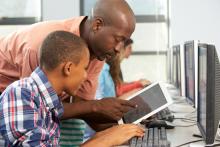
The Strengthening Data Literacy across the Curriculum (SDLC) project is developing and studying high school curriculum modules that integrate social justice topics with statistical data investigations to promote skills and interest in data science among underrepresented groups in STEM.
In today’s data-driven world, innovation, scientific progress, and the health of civil society demand a citizenry and a workforce with strong statistical thinking and data literacy practices. Studies show, however, that schools are neither preparing students adequately nor drawing enough students—particularly from traditionally marginalized groups—to data...

In this exploratory project, ODI will collaborate with National Geographic Explorers, educators, and programs to identify specific datasets and “data stories” that would lend themselves to the creation of compelling learning modules for development and deployment in National Geographic’s classroom resources. Specifically, the goal of this project is to take National Geographic Explorer data and create a tool to make the data accessible and in which students can manipulate it to better understand educational concepts. The creation of data-rich, standards-based, classroom-relevant learning experiences takes a unique combination of interesting data and effective scaffolding, which allows learners to unfold...
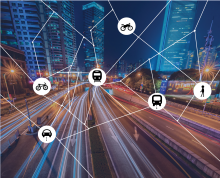
Our cities are becoming increasingly “connected.” Cars, traffic signals, and even the roads themselves are utilizing new technologies to communicate with one another— transmitting, analyzing, and responding to data. A single connected (wifi-enabled) car may transmit up to 25 gigabytes of data an hour to the cloud. And with autonomous vehicles gradually being added to the system, and constant innovations in personal and industrial vehicle design happening daily, our society faces a host of questions about the design of public and private transportation systems that are sustainable, equitable, cost effective, and protect values of privacy and transparency.
The integration of all these digital...
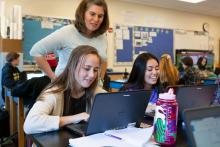
The world is increasingly data-driven. To thrive in this world, students a new level of data literacy — the ability to solve problems and support arguments using data.
Zoom In! Learning Science with Data is creating curriculum modules that build high school students’ skills in using authentic data sets as they explore core topics in biology and earth science. Developed by Education Development Center (EDC) and supported by the National Science Foundation.
Each Zoom In blended learning module is a 3-4 day, standards-aligned science inquiry, with digital supports for students as they read and analyze data to answer a scientific question, debate their interpretations, and take...
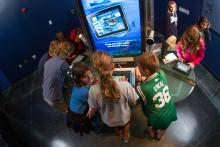
This NASA-funded collaboration with the Gulf of Maine Research Institute (GMRI) builds on the success of GMRI’S LabVenture Program to create learning experiences focused on exploring the effects of climate change in and around the Gulf of Maine. Educators and students interact with authentic NASA and NOAA data to study the effects of the Earth’s changing climate on the animals and plants of Maine’s diverse habitats. The grant allowed GMRI to completely re-design the LabVenture learning experience.
This project also created data-focused, classroom-ready curriculum modules, including:
- The ...
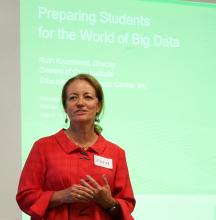
ODI and IBM teamed up for a three-day workshop, October 4-6, 2015, which convened a panel of 12 professionals from both data-intensive industries and K-16 education. The workshop resulted in several products, including:
- defining what it means to be data literate;
- a signed Proclamation of the Need for Data Literacy and Call for Action, endorsed by the panel of experts; and
- a workshop report.
...
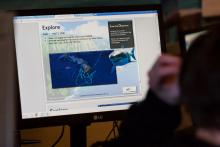
Ocean Tracks College Edition (OT-CE) is a three-year research and development project funded by the National Science Foundation, involving a collaboration between EDC and the University of California, San Diego’s Scripps Institution of Oceanography. The project is creating an interactive Web-based learning resource to help students at different types of undergraduate institutions -- and in both online and face-to-face educational settings -- develop valuable skills in analyzing and learning from large, authentic scientific datasets. Built on a deep foundation of exploratory work from the Oceans of Data...
Professional Development to Integrate the Practices of Science and Engineering into Earth & Space Science Education
The Next Generation Science Standards place a strong emphasis on students’ mastery of “practices” of science and engineering. Among these practices is “Analyzing and interpreting data.” With funding from the Massachusetts Department of Elementary and Secondary Education we are conducting a professional development institute to help high school and middle school teachers incorporate science practices into their student activities and classroom discourse. Teachers spent two weeks at EDC during the summer of 2014, and will participate in follow-up webinars...
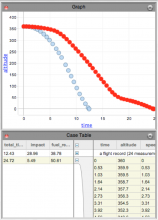
Awarded in the fall of 2013 by the National Science Foundation (grant # 1434570), EDC is working with Concord Consortium and the University of Minnesota on the Common Online Data Analysis Platform (CODAP) project. The CODAP team is developing and classroom-testing an online, open-source data analysis platform that can be used in conjunction with a variety of data types and curricula. The project’s overarching goal is to improve the quantity and quality of learning with data that occurs in K–12 STEM classrooms so that students emerge better prepared to participate in our data-driven society. The hypothesis is that collaboration with STEM projects to develop online data analysis tools and curricula, plus...

EarthCube is an NSF initiative to develop a national cyberinfrastructure which will give researchers and students easy access to earth data and models in a way that is intended to catalyze and facilitate interdisciplinary thinking and systems thinking, across institutional, spatial, and temporal boundaries. As input into the design of EarthCube, NSF sponsored a series of "end-user workshops," in which groups of potential EarthCube users were asked to define and articulate the needs of their communities. Our workshop convened scientist-educators, employers who wish to hire data-savvy graduates, data providers who wish to have students and teachers...
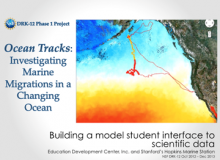
Ocean Tracks: Investigating Marine Migrations in a Changing Ocean (Ocean Tracks) was a two-year Phase I research and development project funded by NSF (grant #1222413). A collaboration between EDC and Stanford University’s Hopkins Marine Station, Ocean Tracks is a student-friendly interface that uses authentic scientific data from the Tagging of Pacific Predators (TOPP) Program, NOAA’s Global Drifter Program, and the National Center for Ecological Analysis and Synthesis at UC Santa Barbara. Students use the Ocean Tracks interface to explore the migration patterns of large marine...
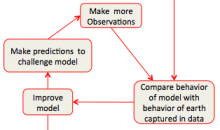
This classroom research project seeks to understand more about how teachers teach and students learn using physical models in Earth Science. A key finding is that classroom teaching with models tends to be disconnected from teaching with data, even when the same teacher does both in the same course. This is in contrast to the situation in scientific research data, where there is a constant interplay between the two. We suggest a teaching sequence in which students experience using data to develop and test a model and conversely use model output to guide the collection of data.
- Read Kastens, et al, NARST paper:...
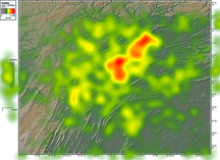
This laboratory research project seeks to understand more about how students form inferences and interpretations as they view geoscience data visualizations. Individual participants view data visualizations of topography/bathymetry or ocean salinity while answering an experimenter’s spoken questions about what they are seeing and what they think it means. Their responses and gestures are videotaped, and their gaze position is recorded using a Tobii eye-tracking system. This is a collaborative project with the Spatial Intelligence & Learning...
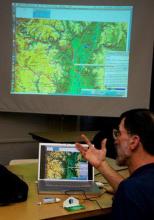
InTeGrate is a nationwide effort to transform undergraduate geoscience education in such a way as to increase the flow of individuals with Earth expertise into the employment pipeline and to contribute to solving national grand challenges of environmental sustainability. Oceans of Data Institute Principal Scientist Kim Kastens is one of the external evaluators for the project. InTeGrate’s work intersects with the Institute's work because one of the five themes guiding InTeGrate pedagogy is that all instructional materials developed through InTeGrate are required to “make use of authentic and credible geoscience data.” This project involves dozens of organizations across the country led by the Science...
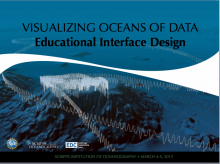
The practice of science and engineering is being revolutionized by the development of cyberinfrastructures for accessing near real-time and archived observatory data. To inform efforts at bridging scientific cyberinfrastructures to the classroom, Education Development Center, Inc., and The Scripps Institution of Oceanography conducted a collaborative exploration focusing on the central question, “How can the design of electronic interfaces support high school students’ learning with large scientific databases?” The EDC team, lead by PI Ruth Krumhansl, reviewed and coded more than 200 articles from over 50 different journals representing diverse fields such as...
Professional Development to Improve the Spatial Thinking of Earth Science Teachers and Their Students
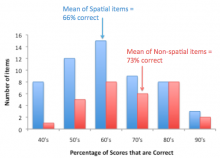
Spatial thinking involves drawing meaning from the position, shape, orientation, trajectory, or configuration of objects or phenomena. For any kind of data displayed on a map or cross-section, spatial thinking is likely to be an important cognitive tool. In this project, we analyzed over 1,000 items from the end-of-course earth science exam given to students in New York state to determine what kinds of spatial thinking were required. We found out that spatial thinking is very common, occurring in 53% of items, and that spatial items are harder on average than non-spatial items. We also developed a professional development workshop series to help earth science teachers understand and foster spatial...
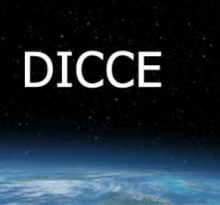
With support from the National Science Foundation, EDC is working with SRI International and NASA in the development and piloting of interactive websites for high school classroom climate-change investigations. The websites allow high school students and teachers to assemble customized datasets about local and global climate change from NASA remotely sensed Earth observation mission data archived in NASA’s Goddard Interactive Online Visualization and Analysis Infrastructure (GIOVANNI). GIOVANNI (DICCE-G) is a powerful portal of Earth observation data that provides access to numerous data products on Earth system phenomena covering land biosphere, physical land, ocean biosphere, physical ocean, physical...

The Other Worlds: Other Earths project aims to give high school students first-hand experience in gathering, analyzing and interpreting data. In two laboratory modules, the students use online telescopes to search for exoplanets. During the first lab, students direct a remote telescope to take images over the ~4-hour period it takes for a planet to pass between Earth and a star, then they carefully analyze the light measurements in these images to detect the very slight dimming of the starlight that occurs during the exoplanet transit. They combine their measurements with those of other students (in their class and nationally) to generate a light curve, which they then interpret to detect the...
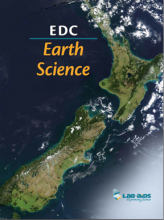
EDC Earth Science, developed as part of the NSF-funded Foundation Science project at EDC (grant #0439443) and published by LAB-AIDS, takes students on an exploration of current and compelling questions, seeking answers grounded in authentic data and the growing body of knowledge about Earth’s systems. A full-year high school earth science course developed with support from the National Science Foundation and fully aligned to A Framework for K-12 Science Education: Practices, Crosscutting Concepts and Core...

